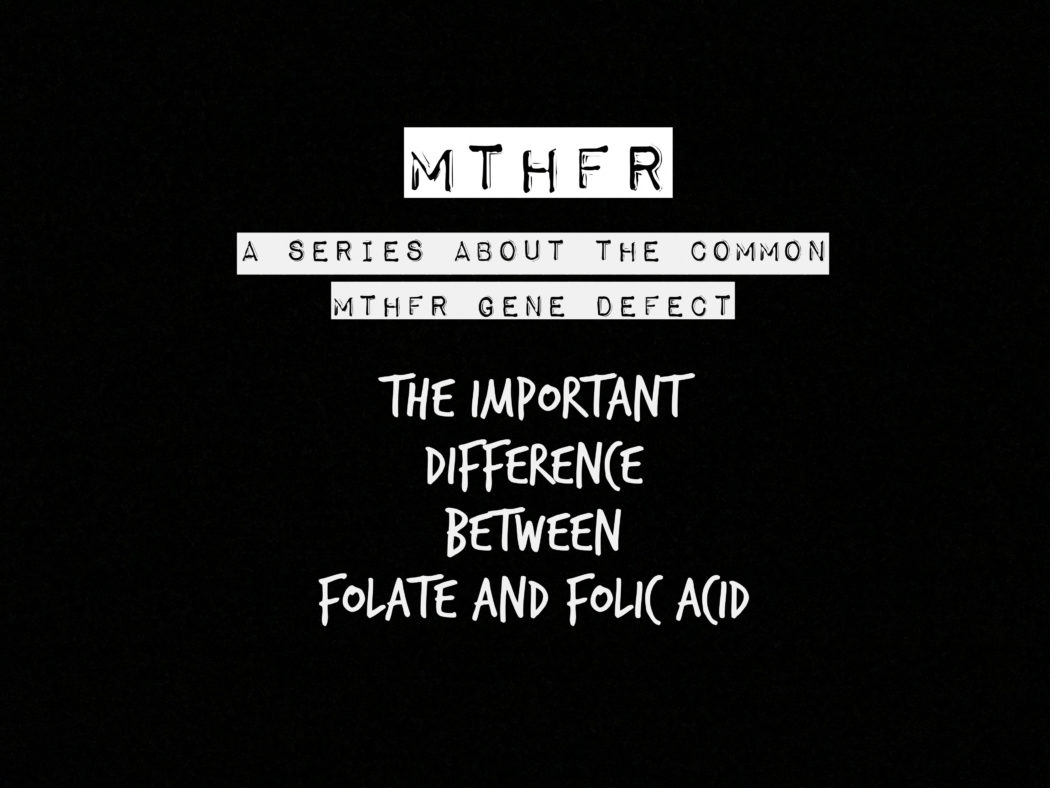As I wrote here, I’m currently researching the MTHFR gene defect. I want to find out if and how it has something to do with my current health problems. Thus, I thought it would be best to break down the information I gather during my research in a series of posts. That way, I can present the information on this complex subject in a more easily digestible way by writing about different aspects one at a time.
Start from the beginning here and/or see all posts of the series here.
Today, I am writing about folate and its other forms. I will cover the important difference between folate and folic acid and what people with an MTHFR polymorphism should be paying special attention to when it comes to nutrition and supplementation.
The information I present here is simply as I came to understand it through my research. I’m not an expert by any means.
Folate Vs. Folic Acid
Folate (vitamin B9) is naturally occurring in foods like leafy greens, chickpeas or liver. Many foods are enriched with folic acid – the synthetic form of folate. Also, most supplements contain the synthetic folic acid. Folic acid has no biochemical use in the body until it is converted into other methylated forms of folate .
The Problem With Folic Acid
The problem with folic acid is that people with an MTHFR polymorphism have a greatly reduced ability to convert folic acid into methylated folate which is the form of folate the body can use. How greatly this ability to convert is diminished depends on the type of polymorphism one has (more on the different types in a future post). Also, if one consumes large amounts of folic acid that can’t be converted, it may cause a toxic build-up in the body. It is said that this build-up can increase the risk of developing cancer.
What To Do
Dr. Lynch recommends to eat uncooked leafy greens on a daily basis because they contain the dietary form of folate which can be converted into methylfolate much more easily than folic acid. He also recommends to stay away from all processed foods as much as possible as many of them are fortified with folic acid. Also, when one is looking to supplement with folate, it is important to avoid supplements containing folic acid. One should make sure to invest in supplements containing an already activated from of folate.
Especially those with MTHFR should look into supplementing with methylated folate. The reason is that they might not get enough good folate through their diet and their body’s ability to convert folate into methylfolate is diminished to a certain degree (depending on the type of polymorphism). Thus, it’s so imperative to supplement with already methylated folate and not folic acid. It’s important for those people to work with a functional practitioner who is knowledgable about MTHFR and can help determine the type of polymorphism. The physician can recommend adequate supplements, dietary adjustments and more to help with the condition.
(Sources used for this post: MTHFR.net, MTHFR Basics, Folate vs Folic Acid)

